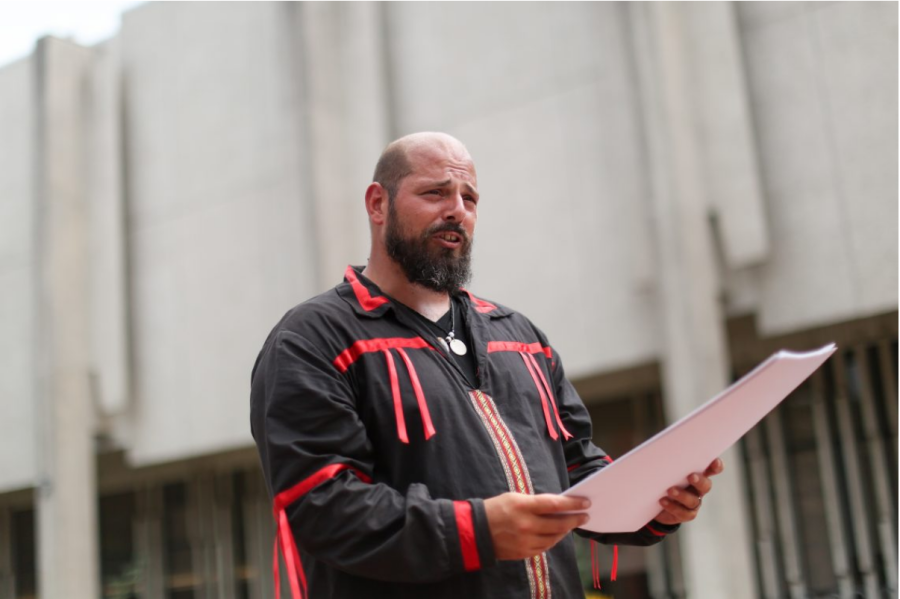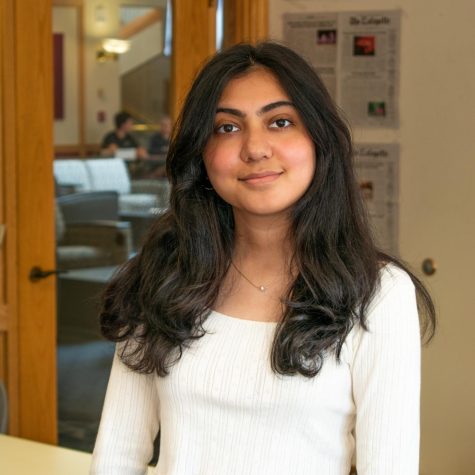Adam DePaul grew up hearing stories of Indigenous culture from his mother. Now, he has dedicated his life to preserving the history of his ancestors.
For the first event of this year’s Native American Heritage Week, the college welcomed DePaul, the Storykeeper and Tribal Council Member of the local Lenape Nation on Monday. The event was an opportunity to learn about Lenape history in the Lehigh Valley and ways that Lafayette students can get involved with the local Indigenous community.
DePaul co-curated the Lenape Cultural Center in Easton and the exhibit “Existing Artistry, Enduring Presence: The Lenape Nation of Pennsylvania” at Temple University. He is an instructor at Temple with a primary research area in Cultural and Mythological Studies and is also the co-founder and president of NAISAT (Native American and Indigenous Studies at Temple).
“I have always had a personal passion to tell stories. I thoroughly enjoyed this role because it embraces both my academic life and cultural life,” DePaul said in an interview. “Therefore the research I do in my classes and dissertation work is going into both my story keeping archives and the nation’s archives in order to advance our knowledge on [Indigenous] history.”
At Monday’s event, DePaul spoke specifically about the Lenape Nation in Pennsylvania, New York and New Jersey in order to emphasize the extent to which Lenape culture was erased. He recounted how Lenape women were forced to marry colonial people and leave behind their Lenape culture and explained how the Lenape people were compelled to erase their rich heritage that was inextricably linked with their identity.
DePaul also inadvertently shed a light on the role of a Storykeeper: to preserve the history and stories of a culture once threatened into extinction. The drive to preserve the customs and heritage of the remaining Lenape people has prompted several projects including the Lenape Culture Revitalization Project, which acknowledges the link between language and culture. Language classes are offered in the community that help spread the endangered language and prevent its extinction.
“One of the broad things I always hope to accomplish by speaking at an event are raising awareness of Lenape culture and our contemporary culture here and correcting a lot of the misinformation that is often taught about Lenape history. As the nation’s academic liaison, I really value connecting with universities and academic institutions,” DePaul said.
He added that “It is important to know the history of where you are and where you come from because it has led up to your environment and influenced it in some way.”



























































































































